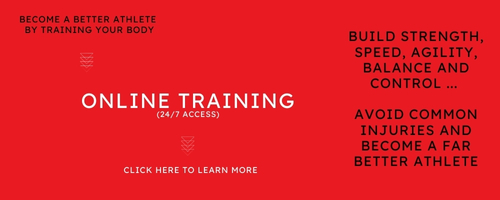Rugby: How Junior Athletes Can Develop Skills To Stand Out
Whether your child is 8 years old or closer to 18, parents should look for a performance coach who can help their kids develop the foundation skills to help them excel on the rugby field. The right foundation will give your child the edge over other players and help them stay injury-free – especially if they want to become a professional player down the track.
8-15 years
Watch the video above about a young Rugby League athlete’s experience with Speed and Agility training.
A strong foundation
If your child loves rugby, starting specific training can help them get 2-3 years ahead of their peers, aid in staying injury free and will give them an edge over other players in the future with experience and movement skills beyond their age level.
The Acceleration coaches are very knowledgeable in how to start preparing younger athletes with the correct foundation of skills, movement patterns and strength at every stage of their athletic development. Developing the foundations at a young age means the players will feel more confident in their skills and enjoy the game as they grow.
Speed and agility
Don’t worry! Your coach won’t be throwing your kid into heavy strength training just yet. Instead the focus will be on building speed and agility.
Your coach will use speed drills including straight, side-to-side and diagonal movements to develop your child’s proprioception or awareness of where their body is in space. Then they can start to teach movement patterns for jumping (including single and double legged exercises), catching balls, landing and evading defenders.
Developing this movement quality is more important than strength at this age and your coach will expose them to a variety of stimuli to train their brains to adapt and move quickly and with agility on the field.
Transferrable skills for other sports
Not only will a tailored program help your child learn how to move and use their body efficiently, it will teach them a variety of skills that are transferrable to other sports and movement patterns.
Enjoyment
Mental development is just as important as physical development for young players and the coaches at Acceleration work hard to make sure each athlete is getting the maximum enjoyment out of training and that they have fun on the field.
16 years +
Biologically, a rugby player only has a limited timeframe to achieve their potential body type so this is when your coach will introduce more strength training and position specific skills to take advantage of this time in their development pathway.
If your child has been training for some time the foundations will be in place to start developing strength, power and position specific skills but if they are new to strength and conditioning, your coach will need to develop those foundation skills before introducing strength and weight training into their program.
Power and strength
The training focus around strength includes increasing functioning muscle mass through gym-based exercises because strength off the field directly correlates to strength on the field.
But players also need to develop power specific to their position so drills often include explosive movements like vertical, lateral and horizontal plyometric exercises. Developing an explosive sprint start means these players will be able to react quickly and move powerfully on the field.
Speed and agility
This training focus is around speed and agility so they can accelerate, run and change direction, dodging defenders on the field.
Rugby speed and agility drills for both front and back players would include sled work and unilateral exercises (to develop an even balance on both sides of the body) as well as working on running form, landing mechanics and force absorption.
Kicking power
Kicking power is a result of the foot moving faster when connecting with the ball so your coach will include relevant exercises which might include speed work and straight legged pushes in order to develop the power needed in the lower body to make the ball go further.
Passing distance
Passing distance is governed by how much force an athlete can produce with their upper body, so your coach will work on developing upper body power in the gym with exercises like weighted medicine ball throws.
Offseason
The offseason is the perfect opportunity to rest, reset and fine-tune your training. Just like a car, your body needs a service or rest after the season has ended.
The offseason is also an opportunity to re-assess your training, your goals and any areas that could be improved. Depending on the athletes needs, the coach might develop a broad focus at the start of the offseason which funnels down towards the on season so that the player feels confident in themselves and the work they have done to improve their game skills.
Injury prevention
Your coach will help educate the player on appropriate rest, how to plan their training week and plan out periods of rest for their bodies. They’ll also receive specific stretches and exercises to improve any areas of tension, which can help prevent injuries in the long run.
How Acceleration can help
When an athlete trains at Acceleration they receive that essential extra 5% –
When you reach an elite level, everyone has the 95% required, but to stand out at that level you need the additional 5% and that’s where Acceleration can help. Athletes who train with Acceleration will have an experienced, passionate and knowledgeable coach to help them improve, achieve their goals and stand out at that elite level.
Whether it’s helping a young player build the foundations for a long rugby career, developing specific skills for a more advanced player looking for team selection or just an athlete who wants to play for the love of the game – the coaches at Acceleration deliver that extra 5%.
[/vc_column_text][tek_button button_text=”I want an individual training program” button_link=”url:%2Frugby-enquiry|||” button_position=”button-center”][/vc_column][/vc_row]

